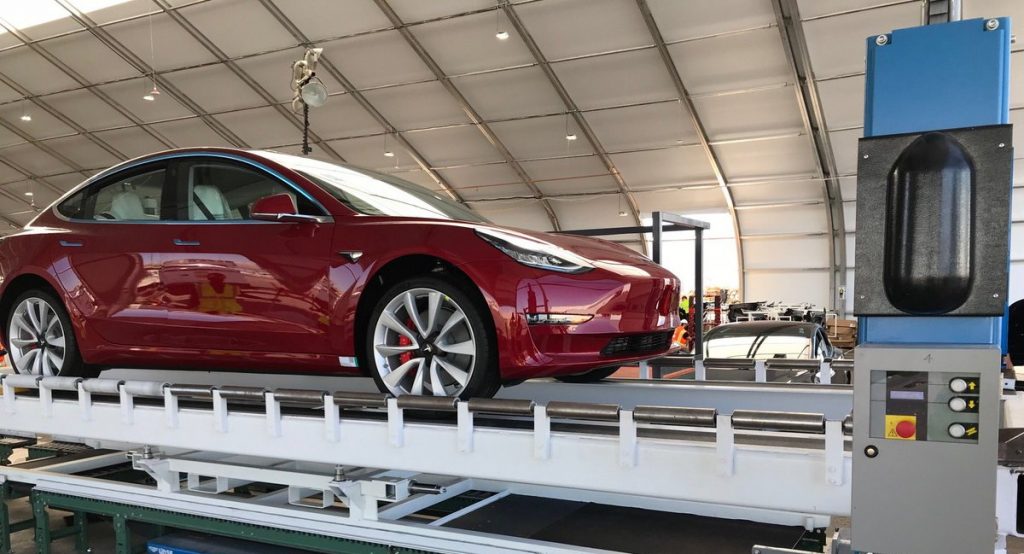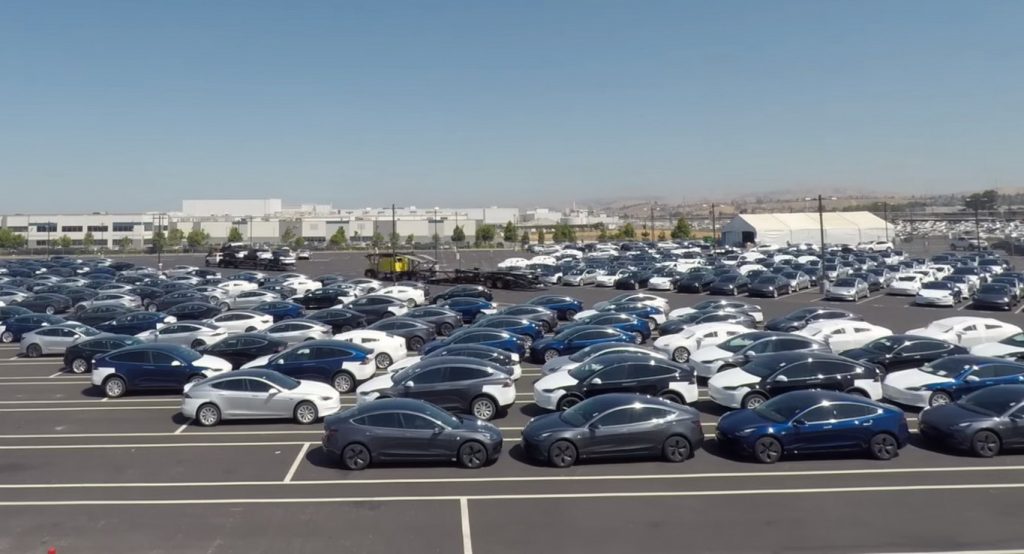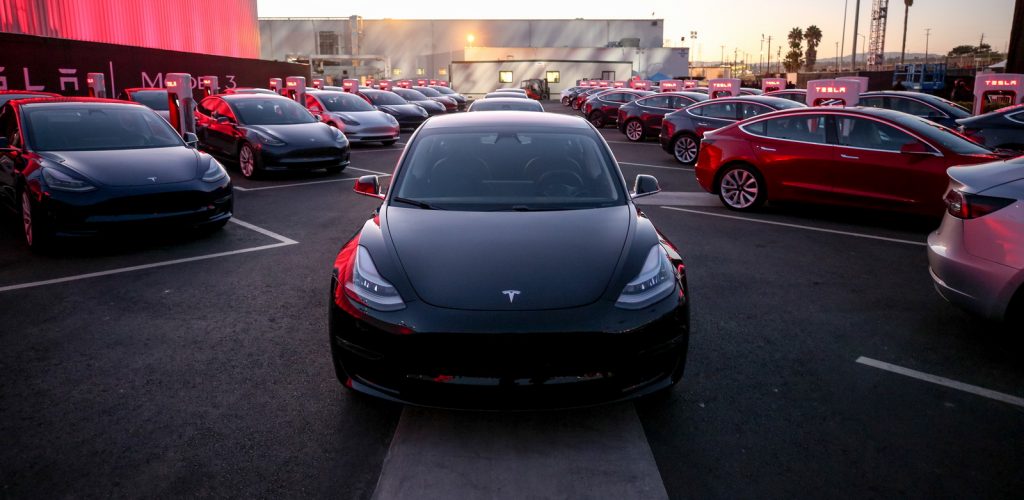Tesla has finally achieved a long-sought and self-imposed milestone the past weekend by making 5,000 Model 3s in a week but in order to make this happen, the Freemont factory had to pretty much pull out all the stops.
According to Reuters, the EV maker tapped workers from other departments to keep the Model 3 line running at the necessary speed, disrupting production of the Model S and X lines while weekend shifts were mandatory for Freemont workers.
Stress levels were quite high at the Tesla factory, with Elon Musk reportedly “snapping at his engineers when the around-the-clock production slowed or stopped due to problems with robots”.
In an unprecedented move for the industry, Tesla built an extra line in just two weeks in a huge tent outside the main factory in a bid to help them reach their goal. The tented production area accounted for 20 percent of the Model 3s produced last week.
“They were borrowing people from our line all day to cover their (Model 3) breaks so the line would continue to move,” said a Model S worker on Sunday.
“They’ve been throwing Model 3s ahead of the S to get painted to try to assure that they make their goal of 5,000. The paint department can’t handle the volume”, the worker added.
Tesla’s focus on building Model 3s resulted in leaving the Model S line around 800 cars behind schedule to enter the paint shop. According to Tesla however, there was no disruption to Model S and X production rates. A company’s spokeperson said that workers from other lines had volunteered to help out on the 3 line.
Tesla’s big push has also introduced a rewrite of the employee attendance policy at the Freemont factory. Following mandatory weekend shift assigning, Tesla revoked the company’s policy that promised workers at least one week’s notice before weekend work, according to two workers.
“The manager and supervisor are verbally going around and saying: ‘If you don’t come in, you’ll be written up’,” one of the workers said during last week.
“They said starting tomorrow be prepared to work up to 12 hours,” said the Model S employee on Monday. “It’s going to be basically 12 hours from now on and I’ve got a feeling it’s going to be six days a week.”
The big question remains: Is Tesla going to keep the production rate at consistently high levels –and without relying on overtime and extra hands? The company plans to build 6,000 Model 3s per week by August, so we’ll have to wait at least until then.










